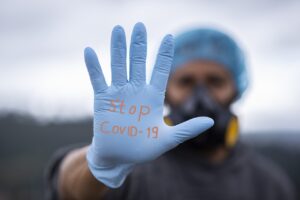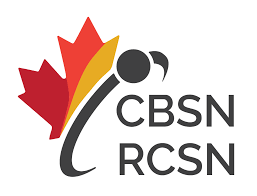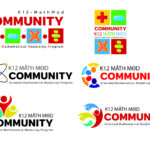About AIMM Lab
AIMMLab – Artificial Intelligence and Mathematical Modelling Lab, was established in January 2020 under the leadership of Professor Jude Kong. Professor Kong is a Canada Research Chair in Community-Oriented Artificial Intelligence (AI) & Mathematical Modelling of Infectious Disease. Additionally, he is the Director of the Africa-Canada Artificial Intelligence (AI) and Data Innovation Consortium (ACADIC) and the Global South Artificial Intelligence for Pandemic and Epidemic Preparedness and Response Network (AI4PEP). He is also the Regional Node Liaison to the steering committee of the Canadian Black Scientist Network (CBSN).
Our primary focus at AIMMLab is to develop and implement innovative mathematical, artificial intelligence, and data science methodologies and technologies for decision-makers in communities, industries, and governments. This is aimed at providing valuable insights into complex challenges stemming from real-world applications in ecology, public health, and data processing. Our research is inherently interdisciplinary, utilizing a diverse range of approaches from the analysis of nonlinear mathematical models to advanced data analysis techniques.
Through our interdisciplinary research program, we provide training opportunities to students interested in data science, artificial intelligence (AI), and mathematical and statistical modeling. Our lab is proud to have founded and currently hosts two influential mathematical and artificial intelligence modeling networks: The Africa-Canada Artificial Intelligence and Data Innovation Consortium (ACADIC) and the Global South Artificial Intelligence for Pandemic and Epidemic Preparedness and Response Network (AI4PEP).
Members of our lab engage in daily collaborations with researchers, government entities, industries, and community members across all the countries where AI4PEP and ACADIC hubs are located as well as throughout Canada.
Students and postdoctoral fellows who are part of AIMM gain essential and transferable skills throughout their tenure. These include the ability to develop research questions, write research and grant proposals, design and analyze mathematical models, manage data, mentor junior scientists, and conduct complex data analyses on large datasets. Our students and postdocs also receive valuable networking experiences within the university and beyond.
Our Lab Objectives
- Design and deploy AI, data science, and mathematical methodologies and technologies
- To enhance public health preparedness and response to emerging and re-emerging infectious disease outbreaks
- For adaptations of fish and fishing communities to rapid climate velocities
- For greenhouse gas emission from oil sand tailings
- For Phytoplankton dynamics
2. Establish and maintain a dedicated group of academic researchers and train highly qualified individuals to address knowledge gaps, capacities, and generate solutions.
3. Inform community level, national, regional, and global policies, and practices on the use of AI, Mathematics, and data science methods to improve equity and to provide important insights into local and global-scale socio-ecological challenges.
Training/mentorship approach
The basic premise of our training and mentorship philosophy is to create a sense of family within the lab. Our Director spend one-on-one time with each lab member to establish a relationship in which they feel comfortable and confident. We foster independence by encouraging lab members to solve problems and build their own networks, but the Director always there to support them whenever needed. Mindful of the fact that it is not uncommon for PhD level and postdoctoral fellow (PDF) trainees to pursue nontraditional paths, We also encourage our trainees to assess their skills, values, and interests via a questionnaire during the first few weeks after joining my team. This selfassessment guides their career opportunities and with it, we help them develop a step-by-step plan to reach their goals. We revisit this questionnaire periodically during their degree/postdoc as things change as time progress. We meet with individual trainees twice a year for an indepth check in and reciprocal evaluation where they can voice any concerns.
Other Significant Contributions

Our lab actively supports research and public engagement by developing accessible data dashboards and portals that host both conventional and unconventional datasets from underserved communities. Examples include:
These publicly available platforms provide critical resources for researchers and public health officials responding to disease outbreaks. Effective outbreak response hinges on the timely exchange of information between policymakers and the public. Communities are especially eager to understand how transmission dynamics evolve in areas where they live, have loved ones, or plan to travel—underscoring the need for up-to-date, localized dashboards.
To meet this need, we integrated artificial intelligence, predictive modeling, and simulations to develop real-time COVID-19 and Mpox monitoring dashboards. These tools deliver not only live visualization but also detailed forecasts down to the smallest administrative units within each region. Policymakers and experts use these dashboards to assess local conditions and guide public health interventions accordingly.
Our dashboards have been officially adopted by decision-makers in multiple African countries—including Botswana, Eswatini, Cameroon, Mozambique, Namibia, Nigeria, Rwanda, South Africa, and Zimbabwe—as well as by the Jane and Finch community in Toronto via the Black Creek Community Health Centre. The South African dashboard alone attracts over one million daily views, while dashboards for other countries receive more than 50,000 daily visits:
Building on these accomplishments, our lab, in collaboration with colleagues from the University of the Witwatersrand in South Africa, has also developed a cutting-edge air quality monitoring device. This device is currently being deployed across South Africa and in Alberta’s oil sands tailings region (South Africa Community Air Quality Monitoring). Data from this initiative are being used to assess the impacts of air pollution on human health, particularly in mining-affected regions of South Africa.

The ability to predict the spread and impact of COVID-19 remains vital for informing strategic policies and best practices, particularly in low- and middle-income countries facing unique challenges. While containment strategies were relatively effective in curbing transmission, the severe socio-economic consequences of the pandemic pressured many African governments to ease critical public health measures prematurely. To support a well-informed and phased transition from widespread to low or no transmission, it became essential to rapidly translate comprehensive epidemiological data into actionable policy.
In response, our lab assembled a multidisciplinary team of over 52 experts from leading academic and government institutions across Africa and Canada under the Africa-Canada Artificial Intelligence and Data Innovation Consortium (ACADIC) (https://acadic.org/). Operating in Botswana, Eswatini, Cameroon, Mozambique, Namibia, Nigeria, Rwanda, South Africa, and Zimbabwe, the consortium has delivered context-sensitive, data-driven analyses to:
- Monitor COVID-19 transmission
- Predict potential resurgences
- Identify and track emerging hotspots
- Stratify patients and assess individual infection risks
- Examine gendered vulnerabilities
- Design strategic, targeted, and staged vaccine delivery plans
These efforts are supported by ongoing monitoring and development of equitable, effective public health interventions. The models developed by ACADIC are now the official tools used by national governments to inform local and national policy decisions. This work was made possible through $1,250,000 in funding from Canada’s International Development Research Centre (IDRC) and the Swedish International Development Cooperation Agency (SIDA), and has garnered international media attention across television, radio, and print (see Non-Refereed Contributions in the Research Contributions Section for links).
As the world began its recovery from COVID-19, and with a clear awareness of the pandemic’s disproportionate impact on vulnerable populations, we secured a $250,000 NFRF-Exploratory Grant to support community recovery. Our Director founded the Resilience Research Atlantic Alliance on Sustainability, Supporting Recovery and Renewal (REASURE2) (https://reasure2.org), a global network focused on mobilizing complex adaptive systems thinking and strategic foresight to address intersecting challenges in marginalized communities. This initiative includes collaboration with partners at York University, Queen’s University, the University of the Witwatersrand (South Africa), and Instituto Tecnológico de Aeronáutica (Brazil).
Our lab’s significant contributions to helping governments and communities manage and contain COVID-19 have earned our Director numerous prestigious honors. These include:
- York Research Leader Award (2020 and 2023)
- Recognition as one of Canada’s Innovation Research Leaders (2021)
- “Black Hero of Operational Research” by the Operational Research Society
- Community Change Maker by People of YU (2022)
- Faculty of Science Early Career Researcher Award, York University (2022)
- President’s Emerging Research Leadership Award, York University (2023)

In 2022, as the world began to reopen, Dr. Kong launched the Global South Artificial Intelligence for Pandemic and Epidemic Preparedness and Response Network (AI4PEP) (https://ai4pep.org/) to strengthen healthcare systems within vulnerable communities. AI4PEP unites an interdisciplinary team of approximately 160 professionals, including clinical public health experts, artificial intelligence researchers, data scientists, epidemiologists, physicists, mathematicians, software engineers, disaster and emergency management specialists, citizen science advocates, and community engagement leaders.
These members represent a broad spectrum of disciplines and sectors, including community health practitioners, program managers, policy-makers, and decision-makers from multiple levels of government. The network draws participants from across Africa, Asia, Latin America, the Caribbean, the Middle East, and North Africa.
AI4PEP collaborates closely with governments, public health agencies, civil society organizations, and other stakeholders to:
- Generate new knowledge and foster interdisciplinary collaborations to inform practices and policies at subnational, national, regional, and global levels;
- Deepen understanding of how responsible AI solutions can enhance public health preparedness and response;
- Design and implement reliable AI-driven tools to promote health equity;
- Advance responsible AI applications in clinical and global public health for managing disease outbreaks in the Global South;
- Mobilize AI to build equitable, resilient governance strategies and improve societal readiness for future pandemics and epidemics; and
- Establish an open, respectful, and collaborative forum for knowledge-sharing aimed at enhancing analytical capacity and research quality in clinical and global public health across low- and middle-income countries (LMICs).
This landmark initiative has been made possible through $7,250,000 in funding from the International Development Research Centre (IDRC) and has received international media attention, including coverage on major television networks, radio programs, and newspapers around the world.

Because of the impact of Dr. Kong’s models in helping governments and communities to contain COVID-19, he was contacted to write a Policy Brief on how to leverage AI and Big Data techniques to inform disease outbreak policies for UNESCO, “Supporting Data-informed Decision-Making in Africa.” This has been distributed widely across all UNESCO member States and used by policymakers in the epidemic and pandemic preparedness and response framework.
In preparation for the inaugural meeting of the Multistakeholder Advisory Body on AI in 2023, the UN called for papers on the following themes: Key Issues on Global AI Governance, Current Efforts in Global AI Governance, and Models in Global AI Governance. Dr. Kong brought together colleagues from the Global South to respond to this call with four collaborative papers. The Office of the Secretary-General’s Envoy on Technology responded very positively to these papers, noting in an email that the papers “will serve as foundational material for the High-Level Advisory Body on AI.”

As an emerging leader in disease modeling, Prof. Kong responded swiftly when monkeypox (mpox) was declared a major public health concern in Canada in 2023. He immediately assembled a dedicated sub-team within his lab to focus on mpox modeling. Today, the team is recognized globally as one of the leading groups contributing to the development of mpox-related policy. Within a year, the lab has published over eight peer-reviewed articles on mpox, which have collectively received more than 232 citations—highlighting their immediate relevance to both academic researchers and public health decision-makers.
Their research sheds light on critical social and structural factors—such as stigma, cultural beliefs, healthcare accessibility, and legal frameworks—that shape individuals’ willingness to report mpox symptoms or seek medical attention. Recognizing and integrating these elements is essential for developing tailored, comprehensive intervention strategies that address under-reporting and drive sustainable improvements in clinical public health outcomes.
The team’s initial response involved the rapid aggregation and analysis of early epidemiological and clinical data from the outbreak. Dr. Kong facilitated access to both conventional and unconventional datasets, making them publicly available to support evidence-based decision-making. To enhance transparency and usability, the team developed AI-powered dashboards that visualize the evolving state of mpox outbreaks, enabling both the public and policymakers to monitor trends in real time.
In a key methodological advancement, the lab introduced the first risk-structured model for mpox transmission that integrates the dynamics of sexual behavior. This model allows for comparison across multiple intervention strategies, including robust control strategies centered on condom use and sexual abstinence, as well as adaptive control strategies responsive to changes in disease doubling rates. These modeling efforts provide valuable insights into disease dynamics and inform the design of effective, targeted interventions—particularly for socially marginalized and high-risk populations such as the 2SLGBTQIAP+ community.

Motivated by the need to address the persistent under-representation of Black professionals in STEM, a group of Black scientists across Canada—including our Director—came together in the summer of 2020 to establish a national network for Black Canadian scientists in STEM. The Canadian Black Scientist Network (CBSN) was founded to promote mentorship, professional development, and increased visibility for Black scholars in the sciences.
Our Director currently serves as the Regional Node Liaison to the CBSN Steering Committee and is the President of the Ontario node (CBSN Ontario). In the role of Regional Node Liaison, he oversees the activities of all CBSN provincial nodes, ensuring that their efforts are well-coordinated, impactful, and aligned with the network’s overarching goals. He also acts as the primary representative and spokesperson for the provincial nodes at CBSN’s weekly steering committee meetings, supporting strategic planning and national engagement efforts.

In 2022, we launched the K-12 MathMods Program, an innovative initiative designed to equip 300 Black students with in-demand mathematical modeling skills. The program aims to strengthen students’ quantitative abilities and empower them to apply mathematics to real-world community challenges, ultimately contributing to sustainable development in Canada.
Spearheaded by Black mathematics professors, postdoctoral fellows, and students—working in close collaboration with parents of participating Black students, MathMods represents the first national K-12 mathematical modeling initiative of its kind in Canada. This pioneering effort arrives at a critical moment, aligning with shifting workforce demands and the growing need for inclusive STEM education.

Every summer, we run SummerUP, a mathematics enrichment program for Black high school students across Ontario. Held from Tuesday to Friday (10 AM–1 PM) throughout the month of July, the program consistently engages 37 to 45 students each year. SummerUP is designed to:
- Strengthen mathematics performance at a pivotal stage in students’ academic and career development;
- Improve their prospects for admission into STEM-based post-secondary programs;
- Build confidence in their mathematical preparation for higher education;
- Cultivate a love for mathematics through a community-centered, culturally responsive teaching approach; and
- Demonstrate how early mathematical concepts can be applied to solve real-world problems rooted in students’ own communities.
Since 2021, our research lab has also offered Saturday Drop-in Homework Sessions for Black high school students. Held weekly from 10 AM to 12 PM, each session consists of one hour of focused homework assistance followed by one hour of curriculum review. Students are divided into small Zoom groups, each supported by two instructors—typically Black undergraduate and graduate math students, postdoctoral fellows, or professors. The initiative is supported by 45 committed Black volunteers from diverse educational and professional backgrounds.
Sessions are promoted through our website, and parents are invited to participate through a dedicated portal [insert link]. The program has received widespread interest, including invitations from Black churches throughout the Greater Toronto Area.

To support the academic and personal success of Black students in the Department of Mathematics at York University, we have established the Blacks in Mathematics Community—a dedicated space that fosters belonging, mentorship, and peer connection. Each week, I hold drop-in sessions and host a conversation hour where students can share their experiences and concerns in a supportive, judgment-free environment. This initiative serves as a “family” for these students, helping to create a culturally affirming academic space. Currently, the group includes 20 students, with expectations for growth in the coming months.

We are actively engaged in national initiatives aimed at enhancing STEM education for students at various levels. This includes mentoring participants in the STEM Fellowship National Undergraduate Big Data Challenge, as well as supporting inquiry-driven learning through the Ask a Mathematician Program, which empowers undergraduate students across Canada to develop critical thinking and problem-solving skills.
In collaboration with the Fields Institute, I also deliver weekly presentations to middle and high school students, reaching at least 30 youths per session. These outreach efforts are part of our broader mission to inspire the next generation of mathematicians and STEM leaders, particularly those from underrepresented communities.

Our research program has demonstrated exceptional productivity and impact. Over the past five years, we have co-authored 116 research papers, with 111 published in 2020 alone. Of these, 82 are peer-reviewed articles (77 published in 2020), and an additional 34 manuscripts are currently under review.
I maintain an active Google Scholar profile, with a citation count of 1,149, an h-index of 18, and an i10-index of 38. From 2020 to 2023, I participated in over 100 conferences and workshops—serving as a keynote speaker, invited speaker, panelist, or moderator at 90 of them. I have also organized more than 33 academic events, with 28 held since 2020.
Additionally, I have made over 48 national and international media appearances to discuss our research and its societal relevance.
As Principal Investigator (PI), Co-Principal Investigator (Co-PI), or Co-Investigator, I am involved in eight collaborative research grants, with total funding exceeding $20.4 billion CAD from prominent agencies such as NSERC, SSHRC, NFRF, CIHR, DRC, SIDA, and IDRC. Of this amount, I serve as PI on grants totaling more than $9.4 million CAD.

My academic service includes extensive contributions through leadership roles in several committees, both at York University and within the broader mathematical sciences community.
I currently serve as Chair of the Canadian Mathematical Society MITACS Innovation Lecture Committee, where I help promote research innovation and academic excellence.
Within York University, I have played pivotal roles on various committees, including:
YUFA – Community Projects, bridging academia and community initiatives
MCM/ICM Competitions Committee, promoting student engagement in global math competitions
High School Liaison and Recruiting Committee, fostering early academic interest in mathematics
Industrial Outreach Committee, strengthening university-industry partnerships
In alignment with my commitment to equity, diversity, and inclusion, I actively participate in the Race Equity Caucus (REC) Committee at York.
These roles reflect my dedication not only to advancing mathematical research but also to creating inclusive academic environments and impactful community engagement.
